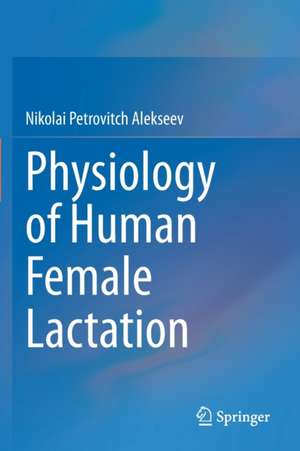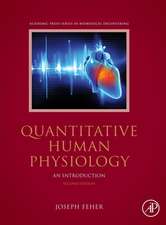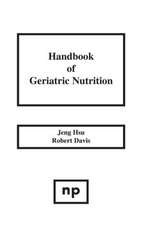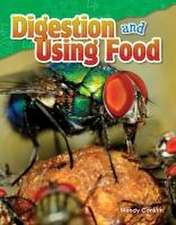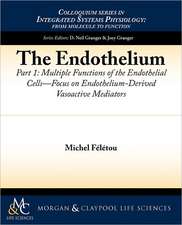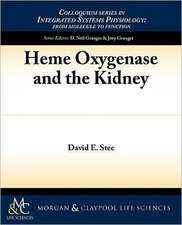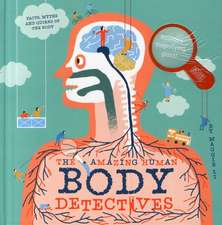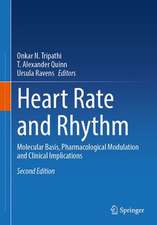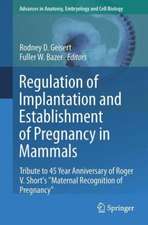Physiology of Human Female Lactation
Autor Nikolai Petrovitch Alekseeven Limba Engleză Paperback – 23 feb 2022
Readers will appreciate the special focus on reflexes, both in the child and the mother, that help to regulate maternal milk production and secretion. Following this, the author sheds a light on the composition and dynamics of milk components during the different periods of lactation. The final section of this volume focusses on practical aspects of modern breastfeeding, like the use of breast pumps or galactogogues, to influence the productivity of milk production.
These fundamental principles and structural details will be particularly useful for physiologists and clinicians working in gynecology and pediatrics.
| Toate formatele și edițiile | Preț | Express |
|---|---|---|
| Paperback (1) | 1155.53 lei 6-8 săpt. | |
| Springer International Publishing – 23 feb 2022 | 1155.53 lei 6-8 săpt. | |
| Hardback (1) | 1162.44 lei 6-8 săpt. | |
| Springer International Publishing – 23 feb 2021 | 1162.44 lei 6-8 săpt. |
Preț: 1155.53 lei
Preț vechi: 1216.34 lei
-5% Nou
Puncte Express: 1733
Preț estimativ în valută:
221.14€ • 240.12$ • 185.75£
221.14€ • 240.12$ • 185.75£
Carte tipărită la comandă
Livrare economică 22 aprilie-06 mai
Preluare comenzi: 021 569.72.76
Specificații
ISBN-13: 9783030663667
ISBN-10: 3030663663
Ilustrații: VIII, 254 p. 87 illus.
Dimensiuni: 155 x 235 mm
Greutate: 0.37 kg
Ediția:1st ed. 2021
Editura: Springer International Publishing
Colecția Springer
Locul publicării:Cham, Switzerland
ISBN-10: 3030663663
Ilustrații: VIII, 254 p. 87 illus.
Dimensiuni: 155 x 235 mm
Greutate: 0.37 kg
Ediția:1st ed. 2021
Editura: Springer International Publishing
Colecția Springer
Locul publicării:Cham, Switzerland
Cuprins
CHAPTER 1: Introduction.
1.1 Brief history of research on the physiology of female lactation and breastfeeding.
CHAPTER 2: Origin and development of the breast.
2.1.The origin of the breast.
2.2 Breast development.
2.2.1 Prenatal development of the breast.
2.2,2 Development and functioning of the breast in the first two years of life.
2.2.3 Breast development during puberty.
2.2.4 Development and functioning of the breast of a mature woman.
2.2.5 Development and functioning of the breast during pregnancy.
CHAPTER 3: Structure of the lactating breast.
3.1 Structure of the alveolar-ductal system.
3.1.1 Alveolus.
3.1.2. The basement membrane.
3.1.3 Ductal system of the breast.
3.1.4. Stromal environment of the alveolar duct system.
3.2 The circulatory system of the breast.
3.3. The lymphatic system of the breast.
3.4. Innervation of the breast.
3.4.1 The external afferent receptors of the breast. 3.4.2 Afferent receptors of internal structures of the breast.
3.5 The muscular system of the breast.
CHAPTER 4: Breast function during the initial period of lactation (lactogenesis I and II).
4.1. Beginning of lactation (lactogenesis I).
4.2. The establishment of lactation (lactogenesis II).
4.2.1 Rooting reflex of the child.
4.2.2 Infant's milk ejection reflex. 4.2.3 Mother's milk ejection reflex.
4.2.4 Maternal reflex of milk secretion.
CHAPTER 5: The period of established lactation (lactogenesis III).
5.1 Composition and dynamics of mature milk.
5.2. Productivity of lactation.
5.2.1 Effect of prolactin on the volume of secreted milk.
5.2.2 Effect of oxytocin on the volume of secreted milk. 5.2.3. Galactogogues.
5.2.4. Effects of breast pump use on milk productivity.
5.3 Postlactational involution of the mammary gland.
1.1 Brief history of research on the physiology of female lactation and breastfeeding.
CHAPTER 2: Origin and development of the breast.
2.1.The origin of the breast.
2.2 Breast development.
2.2.1 Prenatal development of the breast.
2.2,2 Development and functioning of the breast in the first two years of life.
2.2.3 Breast development during puberty.
2.2.4 Development and functioning of the breast of a mature woman.
2.2.5 Development and functioning of the breast during pregnancy.
CHAPTER 3: Structure of the lactating breast.
3.1 Structure of the alveolar-ductal system.
3.1.1 Alveolus.
3.1.2. The basement membrane.
3.1.3 Ductal system of the breast.
3.1.4. Stromal environment of the alveolar duct system.
3.2 The circulatory system of the breast.
3.3. The lymphatic system of the breast.
3.4. Innervation of the breast.
3.4.1 The external afferent receptors of the breast. 3.4.2 Afferent receptors of internal structures of the breast.
3.5 The muscular system of the breast.
CHAPTER 4: Breast function during the initial period of lactation (lactogenesis I and II).
4.1. Beginning of lactation (lactogenesis I).
4.2. The establishment of lactation (lactogenesis II).
4.2.1 Rooting reflex of the child.
4.2.2 Infant's milk ejection reflex. 4.2.3 Mother's milk ejection reflex.
4.2.4 Maternal reflex of milk secretion.
CHAPTER 5: The period of established lactation (lactogenesis III).
5.1 Composition and dynamics of mature milk.
5.2. Productivity of lactation.
5.2.1 Effect of prolactin on the volume of secreted milk.
5.2.2 Effect of oxytocin on the volume of secreted milk. 5.2.3. Galactogogues.
5.2.4. Effects of breast pump use on milk productivity.
5.3 Postlactational involution of the mammary gland.
Notă biografică
Prof. Alekseev Nikolay Petrovitch, Department of General Physiology, Saint Petersburg State University, St. Petersburg, Russian Federation
Research interests: role of sensory systems in the regulation of lactation, as well as the development of breast pump for women, working on the physiological principles of milk ejection.
The author works together with D.O. Ott Research Institute of Obstetrics, Gynecology and Reproductology, St. Petersburg, Russian Federation, on the physiology of women's lactation.He is the author of 192 articles and two books on sensory physiology and lactation physiology.
Research interests: role of sensory systems in the regulation of lactation, as well as the development of breast pump for women, working on the physiological principles of milk ejection.
The author works together with D.O. Ott Research Institute of Obstetrics, Gynecology and Reproductology, St. Petersburg, Russian Federation, on the physiology of women's lactation.He is the author of 192 articles and two books on sensory physiology and lactation physiology.
Textul de pe ultima copertă
This comprehensive Monograph examines all peripheral and central mechanisms of regulating the secretion of milk from the lactating breast. The author reviews the complete female breast development, starting with the early childhood, up to pregnancy and lactation. Structural and ultrastructural data on the alveolar-ductal system, together with details of breast innervation, are used to investigate the physiological process of lactation.
Readers will appreciate the special focus on reflexes, both in the child and the mother, that help to regulate maternal milk production and secretion. Following this, the author sheds a light on the composition and dynamics of milk components during the different periods of lactation. The final section of this volume focusses on practical aspects of modern breastfeeding, like the use of breast pumps or galactogogues, to influence the productivity of milk production.
These fundamental principles and structural details will be particularly useful for physiologists and clinicians working in gynecology and pediatrics.
These fundamental principles and structural details will be particularly useful for physiologists and clinicians working in gynecology and pediatrics.
Caracteristici
Provides physiological background to an often only clinically discussed topic.
Examines morphological and molecular characteristics of the lactating breast.
Critically discusses the effect and use of galactogogues on lactation.
Examines morphological and molecular characteristics of the lactating breast.
Critically discusses the effect and use of galactogogues on lactation.
